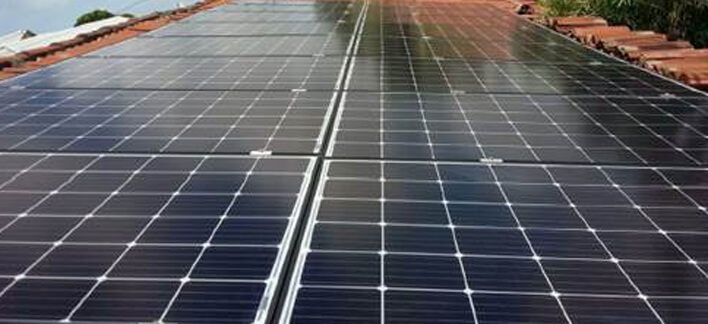
Residential generation of solar power has an expressive growth
The expansion of the offer for electrical energy in Brazil has a new leading figure: the distributed micro and mini-generation, i.e., the production of energy at plants of up to 5 MW, as it happens in the residences with photovoltaic panels. In order to manage with quality and safety the growing volume of that generation model, Neoenergia has been investing in the digitalization of its grids through the Energy of the Future Project, held in the region of Atibaia, in São Paulo. The company created a strategy for the expansion of the residential generation of solar power in the region from Energy Efficiency Program initiatives, regulated by the Brazilian Electricity Regulatory Agency (Aneel).
The distributed generation demands more grid control and management, since it causes a change in the supply flow. The distribution company not only starts to deliver energy to the customers, but it also receives the production from each consumer unit, now in a bidirectional relationship. In Atibaia, according to Aneel, the total installed capacity is 3.1 MW. There are 648 installations in the city since 2015, 216 of which installed this year (30% more to the total amount).
As for the Energy Efficiency Program – Elektro – Neoergia's concessionaire in the region of Atibaia – donated 190 micro-generation systems to low-income consumers across the Municipality. In addition, by November 2020, 54 systems have been installed for residential customers who are not in this classification, who received a 50% discount in the purchase of the equipment. Altogether, those systems have installed capacity of 582kWp and generate 816 MWh/year. Throughout 2021, public buildings in the region will be benefitted with the initiative.
“With the Energy of the Future Project, Atibaia transformed into a national model for what we can expect for the operation of the service over the next few years. The demand for distributed generation is increasing across the world and, with that, consumers are becoming energy producers, which causes a higher demand for grid control and digitalization. All the technology we are implementing throughout the Municipality, such as advanced automation systems and smart meters, are innovations that can be taken to all of our concession area and bring benefits to all customers and the society, such as the increased quality of the service and consumption awareness", said Neoenergia's Smart Grids superintendent, Heron Fontana.
EXPANSION OF DISTRIBUTED GENERATION NATIONWIDE
The distributed generation of solar power in Brazil – including residential and commercial generation – grew by 1.4 GW in 2019, a higher expansion than all the centralized sources, except for hydropower plants, in accordance with the Energy Research Company (EPE). In its Ten-Year Plan, EPE estimates that, in 2030, the installed capacity of distributed generation may range from 16.8 GW to 24.5 GW, whereas it is currently 4.2 GW. From such total amount, 93% come from the photovoltaic source. The number of consumers is probably between 2 and 3 million.
The installation of home solar panels is an investment with benefits, such as the savings in the electricity bill and the valuation of the property. In the current model, the energy is generated and offset in credits into the account. By means of Neoenergia Soluções, the company offsets the service in five States at which it has concession areas – Coelba (Bahia), Celpe (Pernambuco), Cosern (Rio Grande do Norte) and Elektro (São Paulo and Mato Grosso do Sul). In addition, the solar power is a renewable and green source, which contributes to the combat to climate changes, since it does not emit greenhouse gases.
ENERGY OF THE FUTURE PROJECT
Born in 2018, the objective of the Energy of the Future Project is to modernize the electrical energy distribution grid. In addition to sensors and reconnectors, 75 thousand smart meters, equipment which allows for the bidirectional metering of the energy flow – due to the distributed generation, the energy is no longer only delivered to the consumer, but it is also received from the grid. That equipment also allows for the direct communication between the consumer unit and Elektro, enabling the detection of interruptions and automated reconnection of the supply. Neoenergia installed, through the project, the first 4G mobile network operated by a company of the electrical industry in Latin America, in order to assure the connectivity of the modern equipment.
News
2025-12-12
Prêmio Brasil Olímpico 2025: Neoenergia reforça compromisso com esporte feminino no país
2025-12-09
Prêmio Aberje 2025: Neoenergia é campeã nacional com campanha sobre segurança na rede elétrica com Carlinhos Brown
2025-12-01
Exclusivo a mulheres negras, Prêmio Inspirar 2025, do Instituto Neoenergia, anuncia vencedoras em quatro estados e no DF
2025-11-27
Neoenergia e Honda se unem para acelerar uso do hidrogênio verde na mobilidade brasileira
2025-11-25
